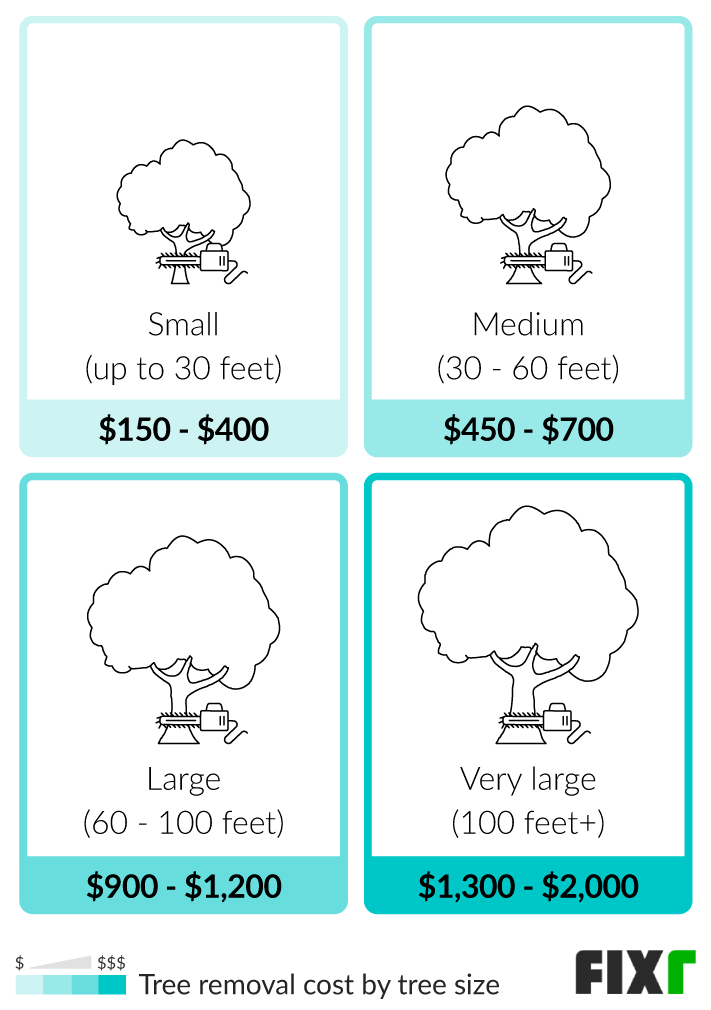Featured
Table of Contents
- – Trusted Tree Clearing In Allendale, NJ: Cost G...
- – Best Ways To Save On Arborist In Allendale, NJ
- – Locating Cheap Stump Grinding In Allendale, NJ
- – Breaking Down Arborist Pricing In Allendale, NJ
- – Allendale, NJ Stump Grinding Fee Breakdown
- – Liability Costs For Stump Removal In Allendal...
- – Allendale, NJ Tree Service Cost Guide
- – Allendale, NJ Tree Cutting Client Testimonials
- – Allendale, NJ Stump Grinding Reviews: What L...
- – Allendale, NJ Arborist Service Rate Sheet
- – Extra Tree Service Costs In Allendale, NJ: W...
- – Rush Tree Cutting Prices In Allendale, NJ
- – Allendale, NJ Tree Removal Cost Options
- – Allendale, NJ Stump Removal Going Rates
- – Top 5 Ways To Save On Tree Removal In Allend...

The subsections below offer more in-depth information about pricing, consisting of a typical variety for each. TypeAverage Elimination CostPineConiferPalmMagnoliaArborvitaeAshCedarSweet GumEucalyptusSycamoreCypressOakMaplePoplar You can expect to pay between to eliminate a pine, depending upon its size. Getting rid of a pine is one of the more budget friendly tasks unless it is one that has actually been around for years and is rather big.
Trusted Tree Clearing In Allendale, NJ: Cost Guide
Pines also have a tap root that grows deep into the soil, which can show to be harder to remove. The process itself includes a professional cutting the tree, clearing the base, cutting the surface area roots, eliminating the stump, and finally treating the soil. Without a professional hand, you risk leaving pine seedlings behind, which will fall from the roots of distressed pines.
Best Ways To Save On Arborist In Allendale, NJ
The U.S. nationwide average for conifer removal is roughly to have the conifer reduced, transported away, and the stump ground or eliminated entirely. Conifers are generally simpler to remove, and even though they can grow quite tall, they do not cost a fortune to eliminate. Conifers consist of pine, spruce, fir, and juniper trees.
Locating Cheap Stump Grinding In Allendale, NJ
While conifers are lovely, they eliminate native plants and particular kinds of lawn. This is since they need a lot of water and nutrients to endure, so they seep it off surrounding plants. They also have an extensive network of roots, which can affect your home's foundation. The average price of palm elimination depends upon the height as much as the type, ranging from.
Breaking Down Arborist Pricing In Allendale, NJ
That is why it is necessary to know which type you are removing. While you do not need an herbicide to kill a palm tree, there are some steps your removal expert will have to require to ensure the task is done correctly. There are 2 ways they can get rid of them: by chopping them down or digging them up.
Allendale, NJ Stump Grinding Fee Breakdown
This is since little animals like rats and scorpions frequently live in them. Plus, many types will have spikes, too. From there, they get rid of the actual tree and then the stump. Anticipate to pay between to eliminate this type of tree, depending on the precise size and details of the job.
Liability Costs For Stump Removal In Allendale, NJ
There are 3 types: green, white, and black ash. White ash is known for its numerous colors. With its gray-tinged bark, its leaves are green or purple in the spring and golden yellow or purplish-red in the fall. They enjoy moderate climates and lots of sun. The green ash is named such due to its green or yellow foliage.
Allendale, NJ Tree Service Cost Guide

The bark is softer, and it flowers later on in the year - stump grinding. Due to the variation in height, the elimination price variance is large from. A coniferous, evergreen tree, the cedar is a hardy species. True cedars enjoy higher altitudes, mainly in the Himalayas and the Mediterranean. A real cedar can grow as high as 160 feet in height and is frequently planted in the United States as a landscape choice.
Allendale, NJ Tree Cutting Client Testimonials
The growth of false cedars varies from 50 feet up to 230 feet high. With star-shaped leaves and sensational fall colors, the sweet gum is thought about a medium to big tree.
Allendale, NJ Stump Grinding Reviews: What Locals Say
Normally, it costs in between to eliminate a eucalyptus. Eucalyptus are not common everywhere, but they are rather large compared to others, which is why even the smaller sized ones are so pricey to eliminate.
Allendale, NJ Arborist Service Rate Sheet
There are a handful of ways to do this, consisting of burning, pulling, grinding, or eliminating them with herbicide. Anticipate to pay in between to remove sycamores, based on the height, trunk size, and amount of work included. Sycamores are among the biggest hardwood trees, usually ranging from 60 to 100 feet high and as large as 15 feet.
Extra Tree Service Costs In Allendale, NJ: What To Watch For
The first 2 actions will expose the insides of the tree and cut off the circulation of nutrients up the trunk. From there, a professional applies herbicide to kill the tree and cuts down the trunk. They will eliminate the stump. Otherwise, brand-new sprouts may grow from it. Lowering and removing a full-grown cypress could cost as much as.
Rush Tree Cutting Prices In Allendale, NJ
There are several kinds of Cypress trees, however the most widespread are the Leyland, Arizona, Bald, and Italian. The Bald Cypress grows in swampy or really damp areas while the others take pleasure in a dry, warm, or hot environment (tree service). They can grow as high as 80 to 100 feet tall
Allendale, NJ Tree Removal Cost Options

Prone to diseases, the Cypress is one of the most treasured woods for furnishings. The average oak grows to around 60 feet, and depending upon the complexity of the removal, it costs an average of to remove. The precise size of your oak and the effort required to fell it impact what you will in fact pay for removal together with any extra services like stump grinding.
Allendale, NJ Stump Removal Going Rates
Access to the trees and the roots will also affect the total cost. Maples can easily mature to 100 feet or more and typically cost in between to get rid of from your home. The last rate depends on the real height and intricacy of the task. Maples are normally amongst the more pricey trees to get rid of due to the fact that of their size and the work included in the elimination.
Top 5 Ways To Save On Tree Removal In Allendale, NJ
Poplars are giants of the species. Growing as high as 90 to 115 feet, these huge timbers are primarily discovered in North America and consist of the aspen, cottonwood, and balsam trees. Boasting an expansive root system, poplars can be expensive to remove when totally grown. The procedure to eliminate trees involves all the trimming and cutting of the branches and trunk, bringing it down to a stump.
Table of Contents
- – Trusted Tree Clearing In Allendale, NJ: Cost G...
- – Best Ways To Save On Arborist In Allendale, NJ
- – Locating Cheap Stump Grinding In Allendale, NJ
- – Breaking Down Arborist Pricing In Allendale, NJ
- – Allendale, NJ Stump Grinding Fee Breakdown
- – Liability Costs For Stump Removal In Allendal...
- – Allendale, NJ Tree Service Cost Guide
- – Allendale, NJ Tree Cutting Client Testimonials
- – Allendale, NJ Stump Grinding Reviews: What L...
- – Allendale, NJ Arborist Service Rate Sheet
- – Extra Tree Service Costs In Allendale, NJ: W...
- – Rush Tree Cutting Prices In Allendale, NJ
- – Allendale, NJ Tree Removal Cost Options
- – Allendale, NJ Stump Removal Going Rates
- – Top 5 Ways To Save On Tree Removal In Allend...
Latest Posts
Extra Stump Removal Costs In Moreno Valley, CA: What To Watch For
Avon Park, FL Tree Trimming: Real Cost Breakdown
Comparing Bowie, TX Arborist: Prices
More
Latest Posts
Extra Stump Removal Costs In Moreno Valley, CA: What To Watch For
Avon Park, FL Tree Trimming: Real Cost Breakdown
Comparing Bowie, TX Arborist: Prices